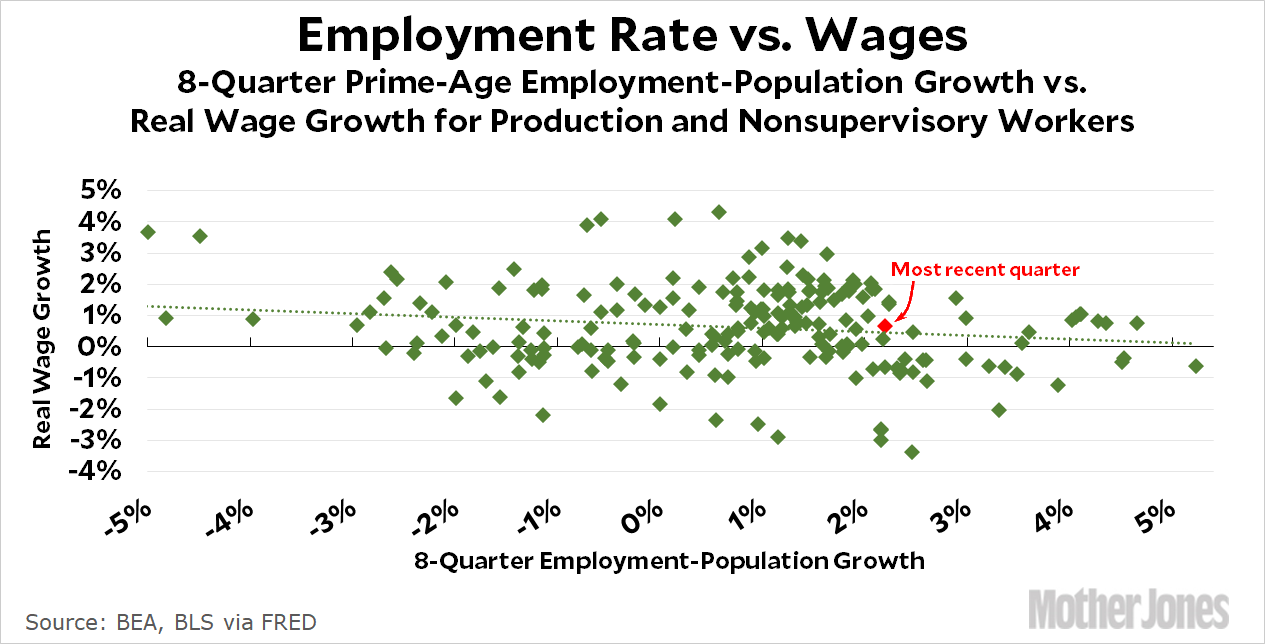A couple of days ago, Brad DeLong noted that when unemployment is low there should be pressure to increase wages. But that doesn’t seem to be happening today. So he linked to a piece by Nick Bunker, who suggests that we should look instead at the prime-age employment rate, which seems to correlate better with wage growth.
I’m usually interested in blue-collar wages rather than overall wages—which includes the earnings of doctors and lawyers and computer programmers—and while reading this it occurred to me that growth in the prime-age employment rate ought to correlate with growth in blue-collar wages. So I looked into it. In the spirit of publishing null results, there appears to be no correlation at all:

I would think that two years of employment growth—no matter where it’s starting from—would lead to at least some growth in blue-collar wages. But the correlation is actually slightly negative. This seems odd. What do you think the reason could be? Is prime-age employment completely disconnected from blue-collar employment? Or is it something else?

















